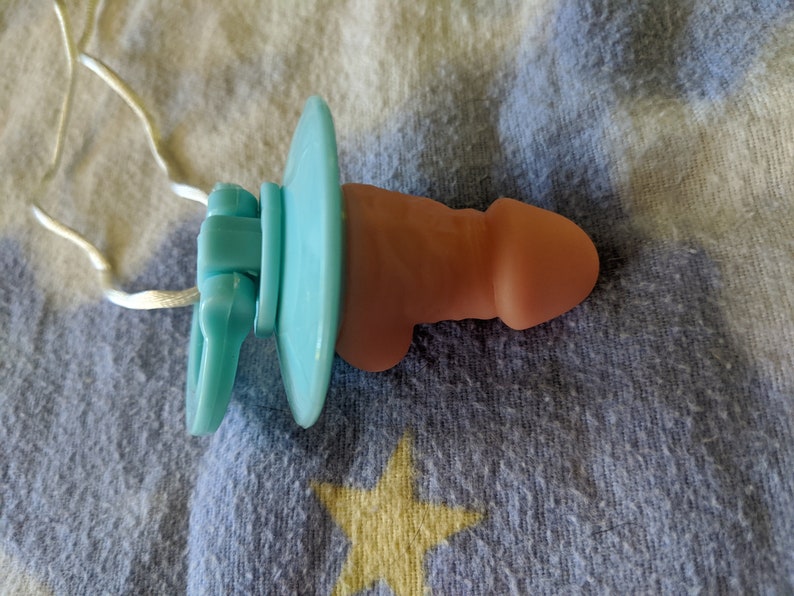


It’s essential to wait for your little one to recognize the difference between a pacifier and a breast. Let him accept it on his own if your baby is stubborn, then there are many other ways to soothe your baby. After trying a few tricks and methods, if your little one still gags on the pacifier, then don’t force him to take a pacifier.Ī pacifier is indeed known to significantly reduce the risk of sudden infant death syndrome (SIDS), but you should never hold a pacifier in your infant’s mouth or force him to take it. Some babies do not want to take pacifier because they simply don’t like it. Should I force my baby to take a pacifier? Within a week or two, you’ll notice that your baby will start adopting the habit and will keep the pacifier in his mouth for a long time without gagging on it or dropping it. Keep doing this for 10 to 15 minutes every day. As soon as your little one gives it a suck, try to pull the pacifier lightly you’ll notice that your baby will try to suck on the pacifier harder. Switch from your breast to the pacifier immediately, and wait for your little one to suck the pacifier. When your baby is nearly done with nursing, he is relaxed, and his sucking speed has slowed. Despite trying several different pacifiers, if your little one is still gagging on the pacifier, then try some reverse psychology.Your baby might adapt to any one of the pacifiers you try. Therefore, the first thing you should do is try several pacifiers of different shapes and sizes. I hope these tips can help your little one but don’t worry if your baby continues to gag on the pacifier. On the other hand, the tips below helped my secondborn to stop gagging on the pacifier and adopt the habit of a pacifier. My firstborn was very stubborn and never accepted pacifiers. If you still want your little one to adopt the habit of a pacifier, or stop your baby from gagging on the pacifier, then below are a few tips that I tried with both my babies and worked well. Tips to help your baby from gagging on the pacifier Speech delay could be a possibility from overuse.Your little one could get a pacifier rash.


The rope can strangle your baby’s neck and can lead to injury or death. Tieing a pacifier around your baby’s neck is very dangerous. A common habit of keeping a pacifier nearby the baby is to tie it around their neck.Improper usage of a pacifier can lead to breastfeeding problems, teeth development in the future, and ear infections.You can throw away the pacifier or hide it, but you can not hide his thumb away from him.ĭisadvantages of giving your baby a pacifier You can control pacifiers’ usage but can not control the habit of sucking of thumb or finger.It reduces the risk of sudden infant death syndrome (SIDS) as it encourages your baby to suck while sleeping and refrain your little darling from heavy sleeping.Sucking on a pacifier is better than the thumb or finger, as it causes fewer teeth development problems in the future.Benefits of giving a pacifier to your baby For babies above 6 or 9 months who cannot swallow solids, their gagging reflex is likely to still be very sensitive. And again, it is a good thing because it allows toddlers to eat and swallow solid food. The gagging reflex slows down with time, becoming less sensitive and harder to evoke. For instance, a baby picks up a rattle and puts it in the mouth, before the rattle stick goes deep in the mouth, the gag reflex will be prompted and will cause them to gag. The gag reflex in a newborn baby is very sensitive and can be easily triggered. This reflex is very beneficial as it helps your little one from swallowing and choking small hazardous objects. Why does my baby gag on the pacifier?įrom the moment babies are born, they gag on nearly every object that enters their mouth. When should I introduce a pacifier to my baby?Īccording to the American Academy of Pediatrics, parents should introduce pacifiers when they are around 3 to 4 weeks old once the baby learns to breastfeed and has adopted a nursing routine. As babies grow older, their reflex becomes harder to evoke and goes deeper in the mouth allowing them to eat and swallow solid food. And guess what? Having a sensitive gagging reflex is a good sign because it prevents your baby from choking on small objects that can be hazardous and potentially fatal. This happens because some babies have a very sensitive gagging reflex. Most babies gags not only on a pacifier but on food, toys, and anything else that enters their mouth. Are you one of those parents who want your little one to adapt to a pacifier, mostly to put an end to the unlimited crying spells (among many other reasons)? But what if your little one gags on the pacifier?Įvery baby is different, and not every baby takes to a pacifier easily.


 0 kommentar(er)
0 kommentar(er)
